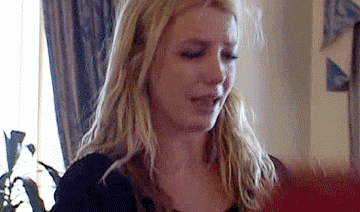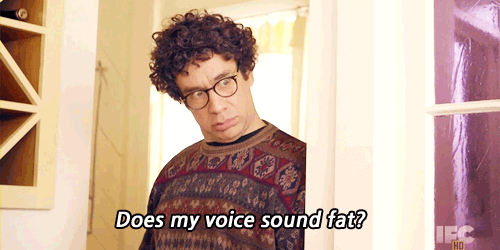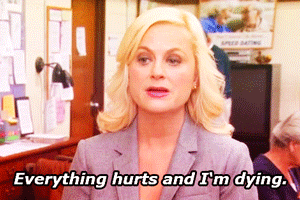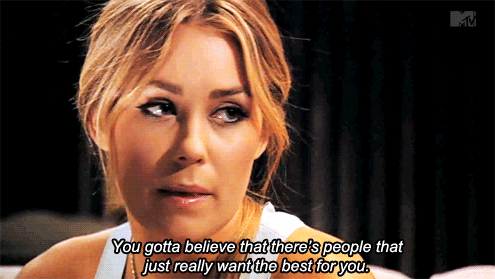8 Things Every Woman in Recovery Should Know

image credit: wifflegif.com
Whether you’re in early recovery or you have some sober time under your belt, there are some things that about recovery that you might not know about. Here are 8 things every woman in recovery should know.
#1. Substance abuse treatment was initially geared towards men only

image credit: wifflegif.com
And while there has been little research on the subject to date, it is believed that gender specific treatment, such as women-only treatment programs, is most beneficial. This is because women drink and use drugs for different reasons than their male counterparts and get addicted differently. Also, women addicts and alcoholics are dealing with untreated trauma and therefore, gender-specific treatment is best.
#2. Stick with the women

image credit: wifflegif.com
This is a great time for you to forge some strong and healthy friendships with other women. Go to some all-women meetings and plan to go out and do things with your new sober sisters.
#3. Learn to love yourself before entering into a relationship

image credit: wifflegif.com
Often, you will hear people in the rooms say to stay away from relationships for the first year of sobriety. This is not actually mentioned anywhere in the Big Book but, it is a widely used suggestion. It’s not a perfect formula either. For some, it may be a good idea to wait longer than a year. Basically, take a good deal of time to invest in your recovery and in yourself before you entertain the idea of getting into a relationship. When we first begin recovering, we are spiritually broken and suffering from low self-esteem. Learn to love yourself before you begin to love another.
#4. PMS can be a trigger

image credit: wifflegif.com
And it is perfectly normal to feel this way at that certain, special time of the month. Just know that you’re not alone. Be aware that you may have certain thoughts and feelings that may have you thinking about using or drinking. Talk to your sponsor and sober supports. Get to a women’s meeting and share about it, meditate, and be gentle and loving to yourself!
#5. Expect to gain weight in early recovery

image credit: wifflegif.com
Oftentimes in our active addiction, we are not eating healthily (or at all) – I know I was subsisting on chocolate milk and unable to eat solid foods when I first got to treatment. So, our brain is in starvation mode. When we stop using and start to get clean and sober, we also begin eating real food again. The brain tells the body to hold on to every morsel of nutrition from the food you are finally eating and therefore it is only natural that you will gain weight.
#6. PAWS can last up to two years

image credit: wifflegif.com
And sometimes even longer. Symptoms of PAWS (Post Acute Withdrawal Syndrome) can rear their ugly head at any time. Be patient and be gentle with yourself. Also take comfort in knowing that there are things you can do to ease these symptoms – exercising, following a healthy diet, getting good rest, meditation, and yoga – to name a few.
#7. You’re not crazy

image credit: wifflegif.com
Many addicts and alcoholics have co-occurring issues, called dual diagnosis, such as depression, anxiety, and bipolar disorder. Sometimes, this is determined while we are in active addition in which case, the diagnosis may not necessarily be accurate. This is because drugs and alcohol can have such a profound effect on our brain as to mimic mental illness and the behaviors and thought patterns associated with such illnesses. It is said that a mental health diagnosis made even within 6 months after your last use can be inaccurate. And if you’re like me, where I began to experience depression at a young age – well before I began drinking and using, it’s OK if you do need to take an anti-depressant. In my experience, it supports me in my sobriety.
#8. Choose a female sponsor

image credit: wifflegif.com
You’ve probably heard this time and time again but, it is so extremely important to follow this suggestion. When working the steps, you must be able to be completely open and honest as well as be able to trust that your sponsor will have your best interests (that is, getting and staying sober) at heart. Being vulnerable with another person can be tricky and, when there is potential for attraction and intimacy between sponsor and sponsee, this can make for a very hairy situation. If you are lesbian, bisexual, or transgendered it is suggested to choose a sponsor who is of the gender with which you most identify (therefore, it might not necessarily be someone of the same sex). If you or a loved one is struggling with substance abuse or addiction, please call toll-free 1-800-777-9588.
